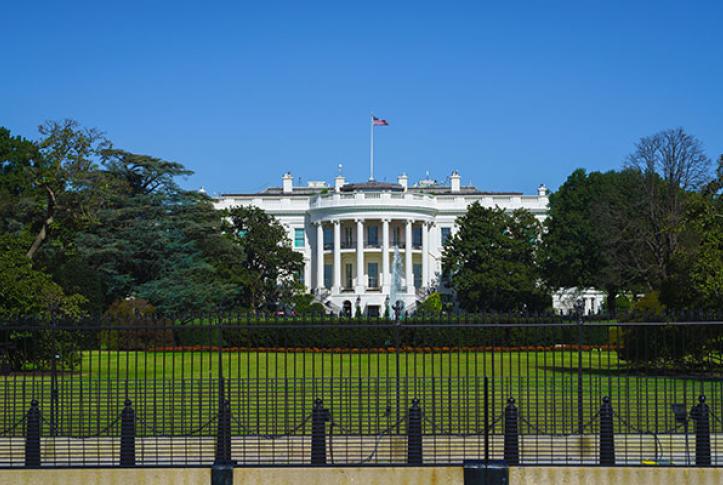This past October, President Trump issued a proclamation that would bar immigrants in certain visa categories from entering the United States unless they purchase specified forms of health coverage or have the resources necessary to pay “reasonably foreseeable” medical costs. The stated motive is to reduce the costs of uncompensated care, or expenses incurred by hospitals and other providers when they deliver services to people without health coverage or the ability to pay.
The proclamation asserts, without evidence, that legal immigrants are a significant source of the $35 billion a year in uncompensated care costs that providers incur. These costs ultimately result in higher insurance premiums, medical bills, and taxes.
Seven individuals and a nonprofit organization sued in an Oregon federal court to block the proclamation’s enforcement. The court issued a preliminary injunction, which the U.S. Department of Justice has appealed. Thirty-eight health policy experts (ourselves included) have filed an amicus brief supporting the plaintiffs. The group argues that the proclamation would increase — rather than decrease — the rate at which recently arrived immigrants require uncompensated care, because it steers individuals away from the very types of comprehensive coverage that federal law provides for preventing uncompensated care.
The Proclamation Bars Immigrants from Federal Programs That Protect Against Uncompensated Care
Medicaid, the Children’s Health Insurance Program (CHIP), and the Affordable Care Act (ACA) help ensure that all U.S. citizens and lawfully present immigrants can obtain adequate health coverage without imposing uncompensated care costs on providers. Together, these programs help ensure that coverage is affordable, that it doesn’t discriminate against people with preexisting conditions, and that it covers a wide array of services.
Although Medicaid is generally not available to immigrants until they have been in the U.S. legally for five years, states can choose to provide Medicaid and CHIP coverage to recently arrived pregnant woman and children, and 39 states and territories do so. Moreover, the ACA ensures that legal immigrants — even those with incomes that are otherwise too low to qualify for financial assistance — can receive subsidized coverage.
These public programs and subsidies have dramatically expanded insurance coverage, driving the uninsured rate down from 20 percent in 2010 to 12 percent in 2018. As access to coverage increased, provider uncompensated care decreased. Between 2013 and 2015, hospital charity care and bad debt decreased by $8.6 billion.
But the presidential proclamation blocks immigrants from accessing Medicaid, CHIP, and the ACA’s premium tax credits. Instead, immigrants must either purchase cheaper coverage, which is likely to leave them underinsured, or forgo coverage altogether if they can show they have resources to cover reasonably foreseeable medical costs. Both of these options would increase uncompensated care.
Coverage Allowed by the Proclamation Will Not Decrease Uncompensated Care
The proclamation lists nine acceptable forms of coverage for immigrants. Some, including employer coverage, are unlikely to be available to most immigrants.
Other acceptable forms are unsubsidized individual coverage, short-term plans, or visitor health insurance plans. Unsubsidized individual health plans, including catastrophic plans, are expensive and available only once an immigrant establishes residency; they also have very high cost-sharing. Short-term coverage, meanwhile, is not subject to the ACA’s consumer protections. Individuals with preexisting conditions may be turned down by insurers or have those conditions excluded, and they may be exposed to high cost-sharing. Moreover, short-term coverage only satisfies the proclamation if it’s available for at least 364 days, but only 26 states allow such plans. Visitor insurance is also not subject to ACA regulation and usually has similar limitations.
Finally, the proclamation’s provision allowing immigrants to establish that they have “the financial resources to pay for reasonably foreseeable medical cost” will not prevent uncompensated care. First, many medical expenses, such as those caused by accidents, are not foreseeable. Other costs may be attributable to conditions like a new cancer diagnosis or a future pregnancy. But even when a condition is known, as a recent analysis shows, a consular official’s projection is likely to leave some immigrants with far fewer resources than they need to cover their actual medical expenses. This leaves providers shouldering uncompensated care costs. It also would likely require other immigrants to demonstrate they have greater resources than they actually need to cover their medical costs.
In sum, President Trump’s proclamation would defeat its stated purpose. It would bar immigrants from public programs that could reduce uncompensated care and drive them to forms of health coverage that would increase their exposure to uncovered medical costs — thereby driving up cost burdens on providers and taxpayers.


